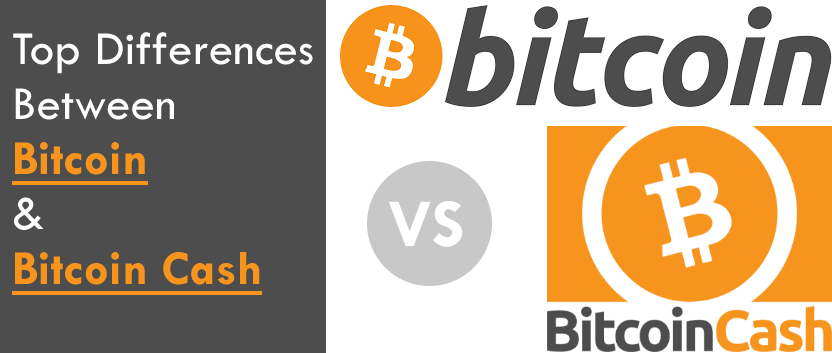Cryptocurrency as an industry is massively growing.
While new coins are coming up, existing coins are getting forked. That’s what happened with Bitcoin (BTC) some few months back -> Bitcoin Cash (BCH)
Bitcoin Cash was first released on August 1, 2017, at a block height of 478 559 as a product of the hard fork, or branching out from the main Bitcoin network. It was originally created by Roger Ver and other members of the Bitcoin community in an attempt to solve the worsening scalability issues of the original Bitcoin developed by an individual (or a group) under the alias of Satoshi Nakamoto back in January 2009.
Similar to Bitcoin, Bitcoin Cash serves as a payment network and also as a cryptocurrency. It also has a  maximum limit of 21 million coins and transactions are confirmed roughly every ten minutes.
maximum limit of 21 million coins and transactions are confirmed roughly every ten minutes.
While there are many similarities between Bitcoin and the new Bitcoin Cash, there are also several aspects that differ them from each other.
Recommended: 5 Benefits of mining for Bitcoin
Some cryptocurrency enthusiasts may argue on which one is a better Bitcoin, but in reality, these two coins have their own strong points in which they can stand out among other cryptocurrencies out there.
Know more about the top four differences between Bitcoin vs Bitcoin Cash and start using cryptocurrencies safely and while doing your own research.
The top 4 Differences Between Bitcoin and Bitcoin Cash
These differences are seen at the level of:
- Block size
- Transaction Speed and Cost
- Charges in the Protocol
- Mining Support
Let’s get into more details.
1 – Block Size
One of the main highlights presented by Bitcoin Cash developers is the increased maximum size of the blocks from 1 MB to 8 MB. A block is comparable to a page in a ledger book in which batches of transactions are recorded permanently.
Increasing the maximum size of the blocks, therefore, allows each ‘page’ to accommodate more transactions.
Although the 8 MB block size does not solve all the scalability problems of Bitcoin at once, it presents a working solution to temporarily reduce the backlog of unconfirmed transactions that we may experience in case of a sudden influx of coin transfers.
[page_section pattern=’https://enstinemuki.com/wp-content/themes/focusblog/images/patterns/subtle_freckles.png’ textstyle=’dark’ position=’default’ padding_bottom=’on’ padding_top=’on’]
Become a Certified Cryptocurrency Expert!

Open new doors to finance and bank big in cryptocurrency.
There is a high demand for Blockchain and Cryptocurrency experts. Certification is the way to sealing consultation and development deals.
Click here for more about the Certification
[/page_section]
2 – Transaction Speed and Cost
Because the Bitcoin Cash network can confirm roughly eight times more transactions than Bitcoin at maximum, it helps speed up the transaction processes and reduce the costs by a significant margin.
At peak speed, the Bitcoin network can handle 7 transactions every second, far less than the average of Bitcoin Cash at 24 transactions per second. Bitcoin transactions cost a little less than a dollar today while Bitcoin Cash transfers are almost negligible to a few cents each.
3 – Changes in the Protocol
Another noteworthy difference between Bitcoin and Bitcoin Cash that you should know is the method of changing the protocol. For the original Bitcoin, miners are allowed to vote whether they agree to a proposed modification or not.
If the majority of the miners would signify their intent, then the change will be applied. It is a different thing for Bitcoin Cash since changes can be implemented at any time without the consensus if the miners.
Recommended: 5 Tips to Trading Cryptocurrency on a Secure Mobile App!
4 – Mining Support
Mining Bitcoin and Bitcoin cash both require ASIC computers to make the process more optimum. The number of Bitcoin rewards per block and the time of confirmations are similar to each other.
Bitcoin though has a stronger mining support which enhances the security of the network. The Bitcoin network is far less susceptible to 51% attacks and all wallets are protected from double-spending.
That’s it for today!
Are you holding Bitcoin and/or Bitcoin Cash? Let me hear your thoughts in the comment box

Comments are closed.